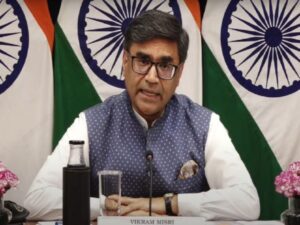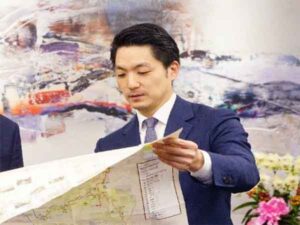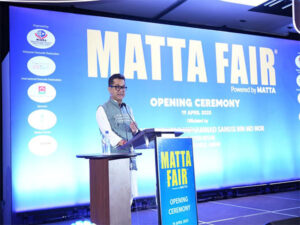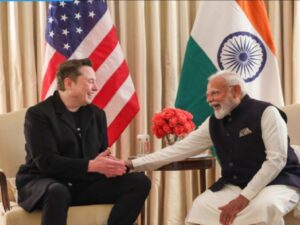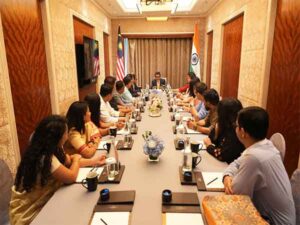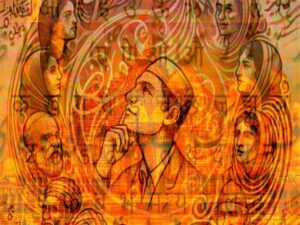Australia holds 1st Tibetan Buddhist Centres’ conference, concern over violations of religious freedom in Tibet
Canberra [Australia], March 29 (ANI): The first conference of Tibetan Buddhist Centres in Australia was held at Aerial Function Centre, University of Technology, Sydney on March 26, 2023, where the representative raised concern over the severe violations of religious freedom in Tibet and the policy of sanitising Tibetan culture and religion by China.
Over 100 representatives, teachers and practitioners from various Tibetan Buddhist Centres in Australia participated in the conference of the Tibetan Buddhist Centre.
The conference, the first of its kind to be held in Australia, was organised by the Tibet Information Office, Canberra with an aim to bring together the Tibetan Buddhist Centre, teachers and practitioners in Australia to discuss the universal teachings of Tibetan Buddhism and His Holiness the 14th Dalai Lama (HHDL) and their significance to the contemporary world and to provide an opportunity to learn and share from each other’s experience.
In his message for the conference, HHDL noted that “in addition to Tibetan Buddhist Centre, there are communities in Australia from historically Buddhist countries such as China, Vietnam and Thailand. During my visits to Australia over the years, I have met many of them. Since we all follow the same teachers, it is important to maintain good relations with them as well. We need to be 21st-century Buddhists by studying and analysing the Buddha’s teachings and not relying on faith alone. Although Tibet, the Land of Snow, has undergone tremendous difficulty in recent times, one of the positive consequences has been that the people have become aware of Tibetan Buddhist Centre, with its emphasis on compassion and warm-heartedness, and is part of the treasure of humanity.”
In his virtual message to the conference, Sikyong Penpa Tsering emphasised the importance of the four principal commitments and the Social, Emotional and Ethical (SEE) learning idea of HHDL and suggested if Tibetan Buddhist Centre in Australia could take an initiative in introducing SEE learning curriculum in Australian schools by contacting local and state authorities.
Australian Senator Janet Rice who is a staunch supporter of Tibet addressed the conference through a video message and said, “The world should not give up easily and allow Tibetan Buddhism and Tibetan traditions and culture to be destroyed by the repressive totalitarian Chinese government. I will continue to speak out and urge the Australian Government to oppose any effort by the Chinese government to interfere with the practice of Tibetan Buddhism and only recognise the HHDL appointment by the Tibetan Buddhist traditions and practices.”
During a brief inaugural function held on the morning of the conference, HHDL’s Rep. Karma Singey welcomed the participants and outlined the objectives of the conference and highlighted the risks faced by Tibetan Buddhism’s future in Tibet with the atheist Chinese government gearing up to increase their control over Tibetan Buddhism by interfering in the Tibetan Buddhist tradition of reincarnation, control of the monasteries, and restrict the academic learning and free movement of monks and nuns.
The Chief Guest of the opening ceremony, Gawaine Powell Davies, Chair of the Federation of Australian Buddhist Councils and Buddhist Council of New South Wales noted that HHDL had brought Buddhism to new countries like Australia along with courage, gifts, friendship and wisdom and HHDL is held in the greatest respect by people across Australia and across the world, Buddhists and non-Buddhists alike, as one of the great men of peace.
He further reiterated that we must all be concerned about the lack of freedom in Tibet, and especially freedom of religion and must be particularly concerned by any attempts to interfere with Tibetan Buddhism and the process for identifying the reincarnation of His Holiness.
Geshe Lobsang Goga, resident lama of Tara institute and Kyinzom Dongdue, a former member of Tibetan Parliament in Exile who were special guests on the occasion spoke on the importance of following the counsel of HHDL and maintaining good relations with communities of other faiths with respect and expressed their grave concern on the violation of religious freedom in Tibet.
The second-panel session was held under the chair of Rep Karma Singey on the theme “Protecting religious freedom in Tibet and the issue of reincarnation of HHDL.”
The conference ended with the following statement of consensus: Recognises the importance of HHDL’s four principal commitments, namely, promotion of human values based on the oneness of humanity; promotion of interreligious harmony among the world’s religious traditions; preservation of Tibetan language, culture, heritage and protection of Tibet’s natural environment; and revival of the ancient Indian knowledge in today’s world.
It also committed to preserving and promoting Tibetan Buddhism under threat in Tibet and strives form promotion of universal human values for the benefits of individuals, society and the world at large.
The consensus reiterated that the selection, education and veneration of the Tibetan Buddhist leaders are exclusively religious matters and recognises defining the process of recognition of the HHDL reincarnation is solely the prerogative of the present HHDL himself and no one else.

